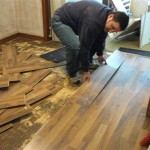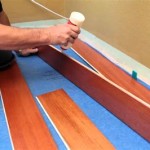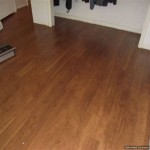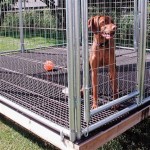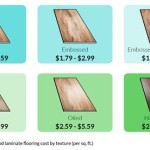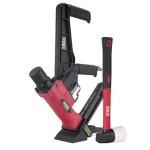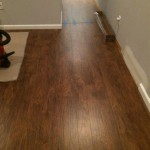Installing Wood Flooring Over Particle Board: Essential Aspects
Particle board flooring is a versatile and budget-friendly option that serves as a suitable base for wood flooring installation. However, to ensure a durable and aesthetically pleasing outcome, careful preparation and proper techniques are essential. This article delves into the crucial aspects of installing wood flooring over particle board, providing guidance to achieve a seamless and successful installation.
1. Moisture Preparation
Particle board has a propensity to absorb moisture, which can compromise the stability of wood flooring. Prior to installation, it is critical to check the subfloor for any signs of moisture using a moisture meter. If moisture levels are detected, immediate remediation measures must be taken. Ensure proper ventilation and consider installing a vapor barrier to prevent further moisture migration.
2. Flattening the Subfloor
Particle board can exhibit surface irregularities, creating an uneven base for wood flooring. To achieve a smooth and even surface, it is necessary to flatten the subfloor. This can be done by sanding down any high spots or filling in low spots with a leveling compound. A flat subfloor will prevent creaking or buckling of the wood flooring.
3. Underlayment Installation
An underlayment serves as a protective layer between the subfloor and the wood flooring. It helps absorb sound, reduce moisture penetration, and enhance the overall stability of the flooring. Choose an underlayment that is compatible with both the wood flooring and the particle board subfloor. Ensure that the underlayment is properly installed according to the manufacturer's instructions.
4. Proper Nailing Technique
When installing wood flooring over particle board, it is essential to use the correct nailing technique. Use nails that are specifically designed for particle board, as they have a larger head that helps prevent the flooring from splitting. Drive the nails at an angle toward the center of the particle board, ensuring that the nail penetrates the joists beneath. Avoid over-nailing, as this can damage the flooring or subfloor.
5. Expansion Gap Maintenance
Wood flooring expands and contracts naturally with changes in humidity. To accommodate this movement, it is crucial to maintain an expansion gap around the perimeter of the flooring. This gap will allow the flooring to expand without buckling or damaging the walls or baseboards. It is recommended to leave a gap of approximately 1/4 inch between the flooring and all fixed objects.
6. Finishing Touches
Once the wood flooring is installed, it is important to apply a protective finish. This could include a polyurethane coating, wax, or oil, depending on the type of wood flooring. The finish will protect the flooring from wear and tear, enhance its appearance, and extend its lifespan.
Conclusion
Installing wood flooring over particle board requires careful preparation and proper execution. By following the essential steps outlined in this article, including moisture control, subfloor preparation, underlayment installation, correct nailing technique, expansion gap maintenance, and finishing touches, you can achieve a durable, beautiful, and long-lasting wood flooring installation.

Installing Hardwood Flooring Over Particleboard Magnus Anderson

Installing Hardwood Flooring Over Particle Board

Solid Hardwood Flooring Installation Method Over Particleboard

How To Install Oak Hardwood Floors Young House Love

Parquetry Engineered Flooring Installation Method Over Particleboard

Installing Wood Subfloors Over Concrete Hardwood Floors

Particle Board As A Flooring Solution
Is It Bad To Install Hardwood Flooring Over Particle Board Quora

How To Tearout Particle Board Before Install Of Wood Floor

Parquetry Solid Hardwood Flooring Installation Method Over Particleboard
Related Posts

